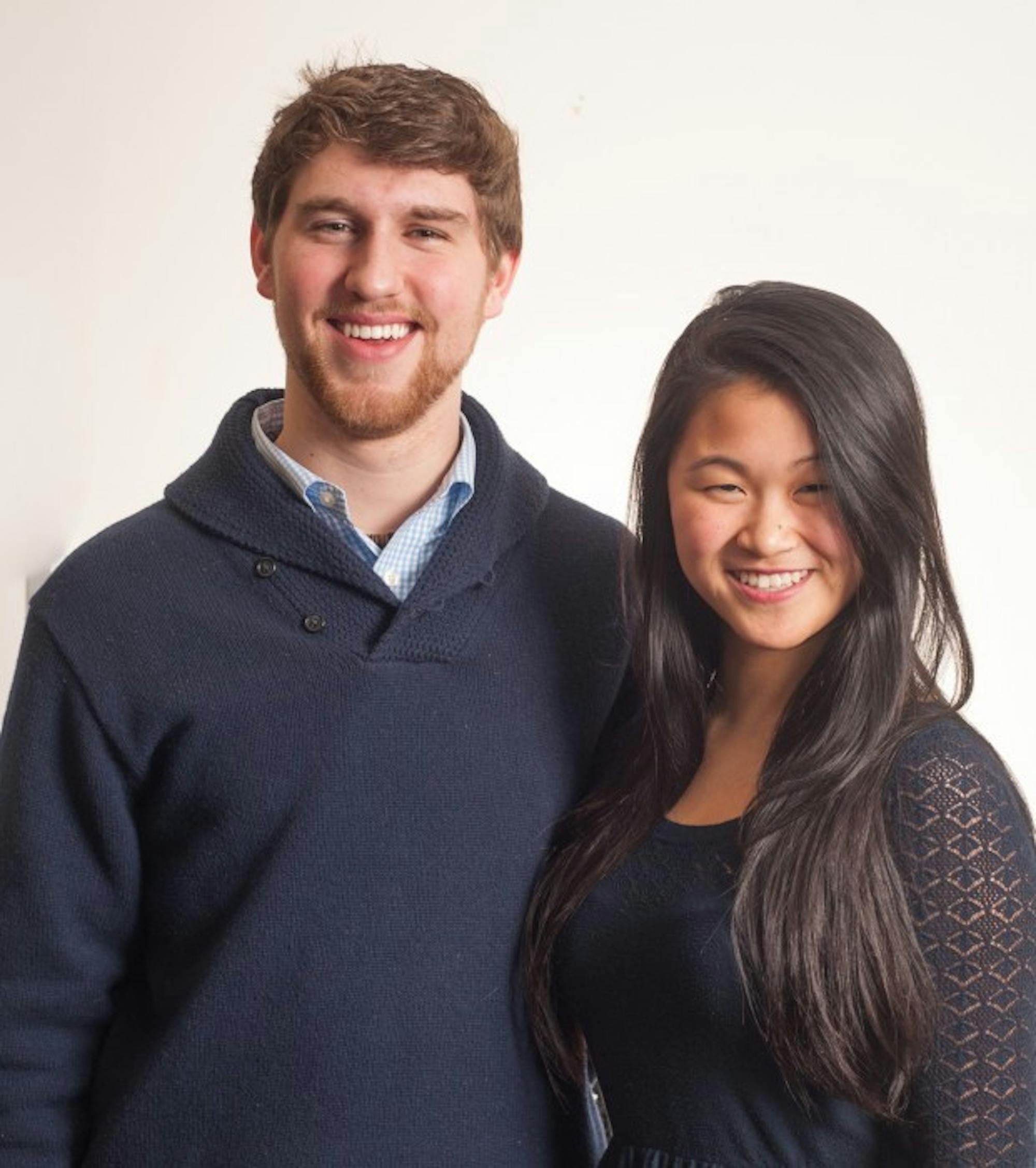
Who they are: Dominic Alberigi, the presidential candidate, is a junior from the San Francisco Bay Area, currently living in Alumni Hall. Majoring in finance and Chinese, Alberigi tutors ESL students in South Bend and is a member of the Notre Dame men’s rugby club.
Jennifer Cha hails from Elkhart, Indiana, and resides in Welsh Family Hall. The junior is a Balfour-Hesburgh Scholar, majoring in English and American Studies with a minor in Africana Studies. Cha currently serves as the vice president of PrismND, an advising fellow with MatriculateND and on the Editorial Board of the Journal of Undergraduate Research.
Top priority: Creating a mental health app for students
Focusing their platform around mental health, the two plan to launch a mental health smartphone application. According to Alberigi, the University provides many mental health resources that students do not realize are available to them — by creating an app, these resources would be put at students’ fingertips. The application would include links to external resources and appointment schedules for the University Counseling Center (UCC) and would also incorporate the existing Warmline chat service, a program through which students are able to contact professionals in a non-crisis situation to via a messaging system.
Best idea: Dining hall reform
Many campaigns, both past and present, have proposed an overhaul of the current dining hall system. However, the system proposed by Alberigi and Cha is well researched and appears feasible to implement. The plan would allow students to purchase a certain number of “points” every semester, with each meal costing a certain amount of points. Students would be able to enter the dining halls as often as they wish, as long as they had the points to purchase the meal. Alberigi said he had discussed the ticket’s plan with Food Services, and it has been implemented at various other universities across the country, providing the University with a clear-cut model. The plan, if put into action, would benefit the majority of students in providing flexibility with dining hall hours and thus is the ticket’s best idea.
Worst idea: Encouraging freshmen UCC visits
While advocating for more students to visit the UCC is an admirable goal, having students visit the UCC regardless of need is unnecessary. The UCC already has difficulty accommodating the needs of students without bogging down the system with needless visits. Alberigi and Cha believe creating demand for a larger counseling center will result in changes, but in the interim, the system would be made sluggish and unable to meet the needs of students. The thought behind the plan is commendable, but the plan itself is unsustainable.
Most feasible: Providing one-credit courses in life skills
The ticket proposed expanding the current system of one-credit courses to include more relevant courses encompassing life skills. Due to the fact the system is already in place, the idea would be easy and fairly inexpensive to implement. Including South Bend professionals in the program is also an innovative way to strengthen the bond between the University and the city.
Least feasible: 24/7 animal therapy rooms
As mental health is the center of their platform, Alberigi and Cha focused on expanding the services available at the UCC. One of the ways in which they plan to do this includes opening animal therapy rooms that operate around the clock in the Counseling Center. The rooms — one for puppies and one for kittens — would theoretically be staffed by volunteers who are participating in a one-credit Animal Therapy course, with walks and grooming provided by volunteers. However, the costs, labor and effort involved do not justify the benefits this plan would bring.
Bottom line
The Alberigi-Cha ticket offers aspirational ideas and lofty goals. The candidates’ focus on mental health is commendable but their plan is not practical — many of their ideas are costly and cannot be implemented in a one-year term.













